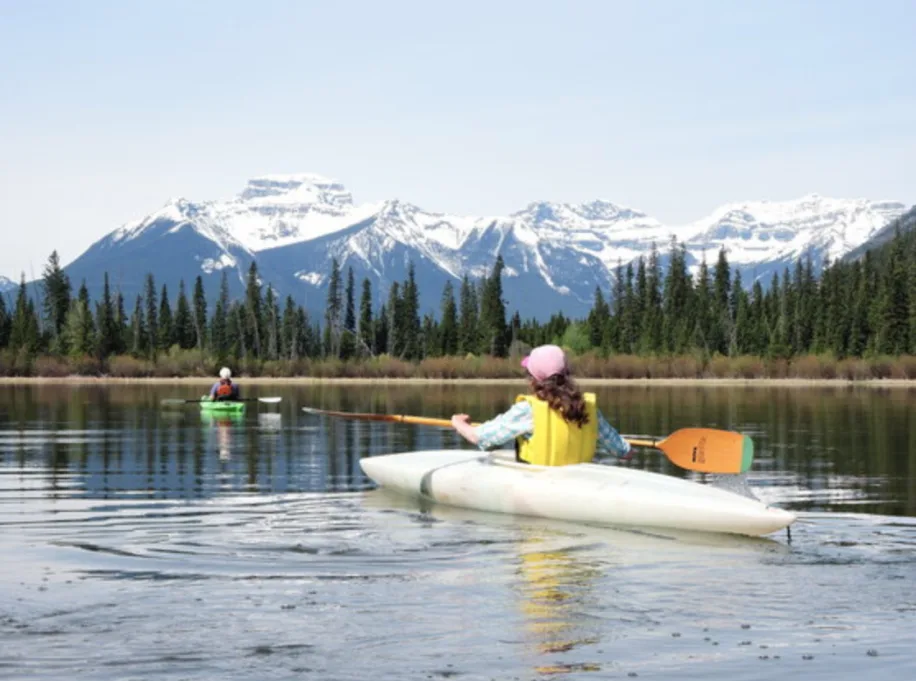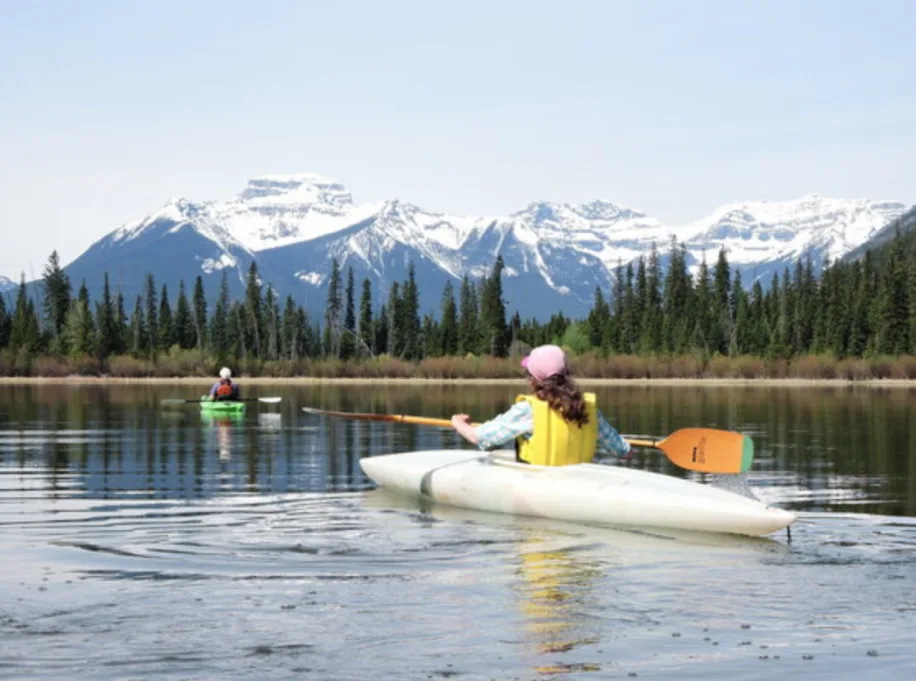
Parks Canada introduces new boating, fishing rules for Banff National Park
If you want to canoe, kayak, fish or paddleboard in Banff National Park, you'll now need to fill out a permit.
Starting Thursday, anyone using non-motorized watercraft or aquatic recreational equipment in the park will need to first declare that they've properly cleaned, drained and dried their gear for at least two days in order to prevent the spread of invasive species.
The rule applies to all bodies of water within the park.
RELATED: Day passes will be mandatory to explore these 5 B.C. parks this summer
Those using motorized boats on Lake Minnewanka will also need to obtain a provincial or Parks Canada inspection before launching.
Daniella Rubeling, visitor experience manager with the Banff field unit, said Parks Canada is committed to integrating environmental protection with visitor experiences.
"We recognize that aquatic invasive species are a threat to our water bodies. So we're increasing our efforts to prevent the spread of those invasive species from entering and spreading in advance," she said.
She said the rules are intended to protect against the spread of invasive species like quagga and zebra mussels, the freshwater algae didymo, the aquatic plant Eurasian water milfoil and whirling disease.
RELATED VIDEO: GLASS-LIKE LAKE PROVES WHY BANFF, ALBERTA MIGHT BE CANADA'S SKATING HEAVEN
"These are the current ones that we are concerned about. And then, you know, there are the unknown invasive species that we don't know about. So these measures are meant to protect us from the ones that we do know about and avoid any future ones as well," she said.
A self-certification permit requirement is already in place in Yoho and Kootenay National Parks.
Permits can be obtained on Parks Canada's website, and will need to be carried while out on the water.

FILE PHOTO: Kayaking on Vermilion Lakes. (Chuck Chuck/Submitted)
"We're trying to make it as easy as possible for people to participate and to help them understand how they can play a role in the prevention of the introduction of aquatic invasive species," she said.
"It's not about preventing people from accessing water bodies and using the water bodies. It's just making sure that they're doing so in a way that is responsible."
Visit our Complete Guide to Summer 2021 for an in-depth look at the Summer Forecast, tips to plan for it and much more!
Rubeling said that for now, Parks staff will focus on education and awareness, as well as gathering information to ensure the program continues to be robust in the future.
However, the Parks website states that fines of up to $25,000 are possible.
This article, written by Sarah Rieger, was originally published for CBC News.





